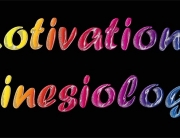What we think about ourselves is reflected in our movements & expressions. Our posture gives a true indication to our inner thoughts & feelings.
Physical changes lead to an improved self image. Addressing the physical, emotional, mental and spiritual issues, creates the best possible environment for long term change. Motivational Kinesiology is a powerful tool for identifying and correcting these limitations.
Some postural indicators of emotional or mental states include:
A person whose head appears twisted & not held level & neck S-curved – mental intensity, worry, apprehension & obsessions.
The head is craned forward, the lumbar curve exaggerated or flattened – scattered, dependent on the opinions of others, information addicts, indecisive & fear of commitment.
One shoulder higher – narrow-mindedness, prejudice, bias, mental rigidity, wish to convert others, self-righteousness.
Winged scapula – resentment, feeling neglected, forgotten, discarded, unappreciated, short-changed in relationships, gives more than receives.
Arms/shoulders turned out differently, rounded/sunken chest – hostility or defensiveness in relationships, jealousy, envy, hatred, possessiveness, selfish.
Hands turned differently, knock knees, can’t balance on toes, body tilts forward – depression, mourning, grief, loss of faith, extreme emotional sensitivity, shock, trauma, fear of death, physical & emotional exhaustion.
Abdominal protrusion, difficulty climbing, difficulty getting up from a seated position – inferiority, hidden shame, regret or guilt, timidity, shyness, victimised, abused.
Lateral spine curve, thigh turned out – disillusionment, withdrawal, loneliness, self-imposed, isolation, fear of rejection, feeling persecuted.
Rounded spine, flat feet, fallen arches, pigeon-toed – identity crisis, gender or cultural role confusion, sexual transition periods (puberty, menopause), frustrated self-expression, fear of failure.






Leave A Comment
You must be logged in to post a comment.